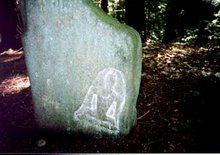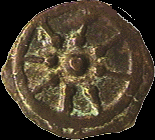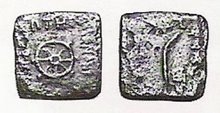
Sunday, September 30, 2018
Greco-Buddhism, or Graeco-Buddhism, is the Hellenized version of Buddhism which developed over approximately 500 years in areas corresponding to modern-day Iraq, Iran, Afghanistan, and Pakistan between the 4th century BCE and the 2th century CE. Greco-Buddhism influenced the conceptual development of Mahayana (Great Vehicle) Buddhism before it spread into China, Korea and Japan. Christianity borrowed heavily from this school of thought (and the Zoroastrians from whom the Judaists borrowed monotheism). There is enough room in the big boat (Vehicle) for everyone.
Rome replaced her old gods (e.g. Jupiter, Minerva) with new ones (e.g. St. Peter, Mary). The old Roman Empire was replaced with the new Roman Catholic Empire.
The Chi-Rho of the Ptolemy family became the Christogram of the new Roman hierarchy.
From these humble (and stolen) beginnings, we fast forward to August 2018.
Pope Francis acknowledged the “atrocities” committed by pedophile priests and the church hierarchy that systematically covered up their crimes. More than one priest was relocated to another archdiocese thereby compelled to leave his altar boys behind.
The pontiff suggested dropping Rome’s long-standing opposition to allowing decades-old cases of rape and molestation by priests to be subject to prosecution and lawsuits. However, there is institutional resistance among Cardinals in the Vatican and Archbishops worldwide to block victims from seeking justice and recompense.
Throughout the United States, top church officials routinely press state lawmakers not to extend the time frame for prosecutors to bring charges against abusive priests or for victims to file civil suits.
There has been no significant reduction in the church’s opposition to extending the statutes of limitations — certainly not since the 2002 revelations of pervasive abuse in Massachusetts, nor after similar exposés in other cities, dioceses, and countries world-wide.
The publication of an exhaustive grand jury report in Pennsylvania provided stunning detail on at least 1,000 children raped or abused by more than 300 priests. That report alone should serve as the conclusion that the institution itself is irredeemable.
The church has spent millions of dollars fighting changes in statutes of limitations to give victims, who often cannot speak for decades about the abuse they suffered as children, more time to bring civil lawsuits.

The grand jury in Pennsylvania recommended eliminating the state’s statute of limitations that would enable people victimized as children to sue.
There is no sign that the church will relax its attacks on such legislation — and on individual lawmakers — favoring extended limits for prosecution or lawsuits.
In some instances, the church has singled out Catholic lawmakers who have backed such changes, telling them they had betrayed their faith.
In 1972, while drafting the Roe v. Wade decision legalizing abortion, Justice Harry Blackmun asked fellow justice William J. Brennan Jr. to review a section in the opinion concerning the Roman Catholic Church.
Blackmun turned to Brennan for clarification of the church’s position on abortion because he expected his colleague would know it by heart. Brennan was the court’s lone Catholic. Blackmun’s side — to legalize abortion amounted to the Roman Church be damned.
Trump considered two Catholic judges, Brett M. Kavanaugh and Amy Coney Barrett, as nominees to fill the seat being vacated by Justice Anthony M. Kennedy.
Trump chose Kavanaugh, a judge trained in Washington’s Jesuit Georgetown Preparatory School. Kavanaugh is active in several Catholic organizations in the area.
A majority of voters say they won't re-elect senators if they confirm Kavanaugh,

Subscribe to:
Post Comments (Atom)























No comments:
Post a Comment